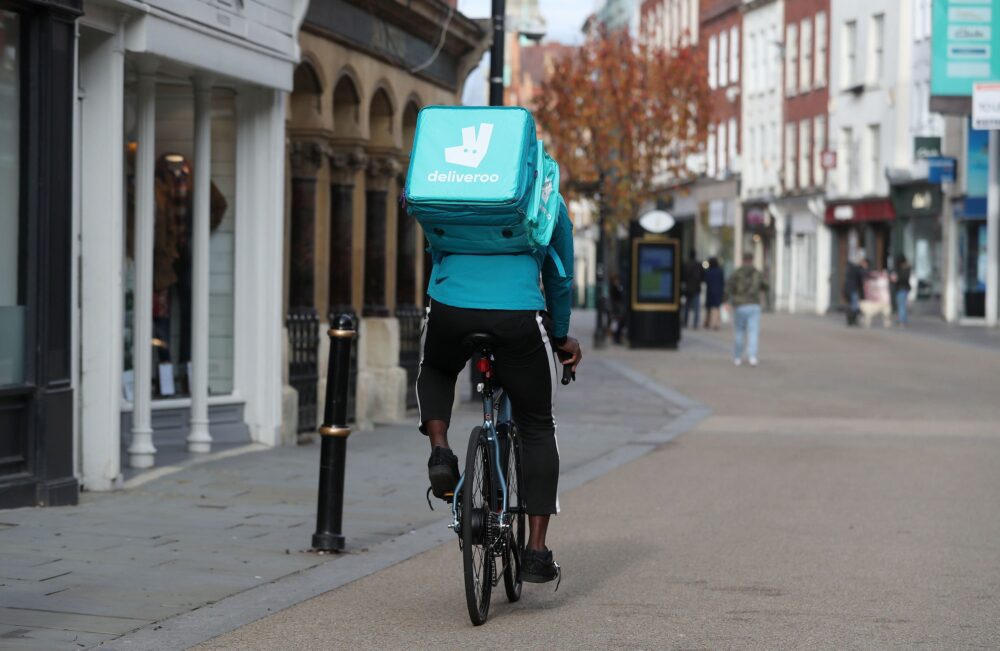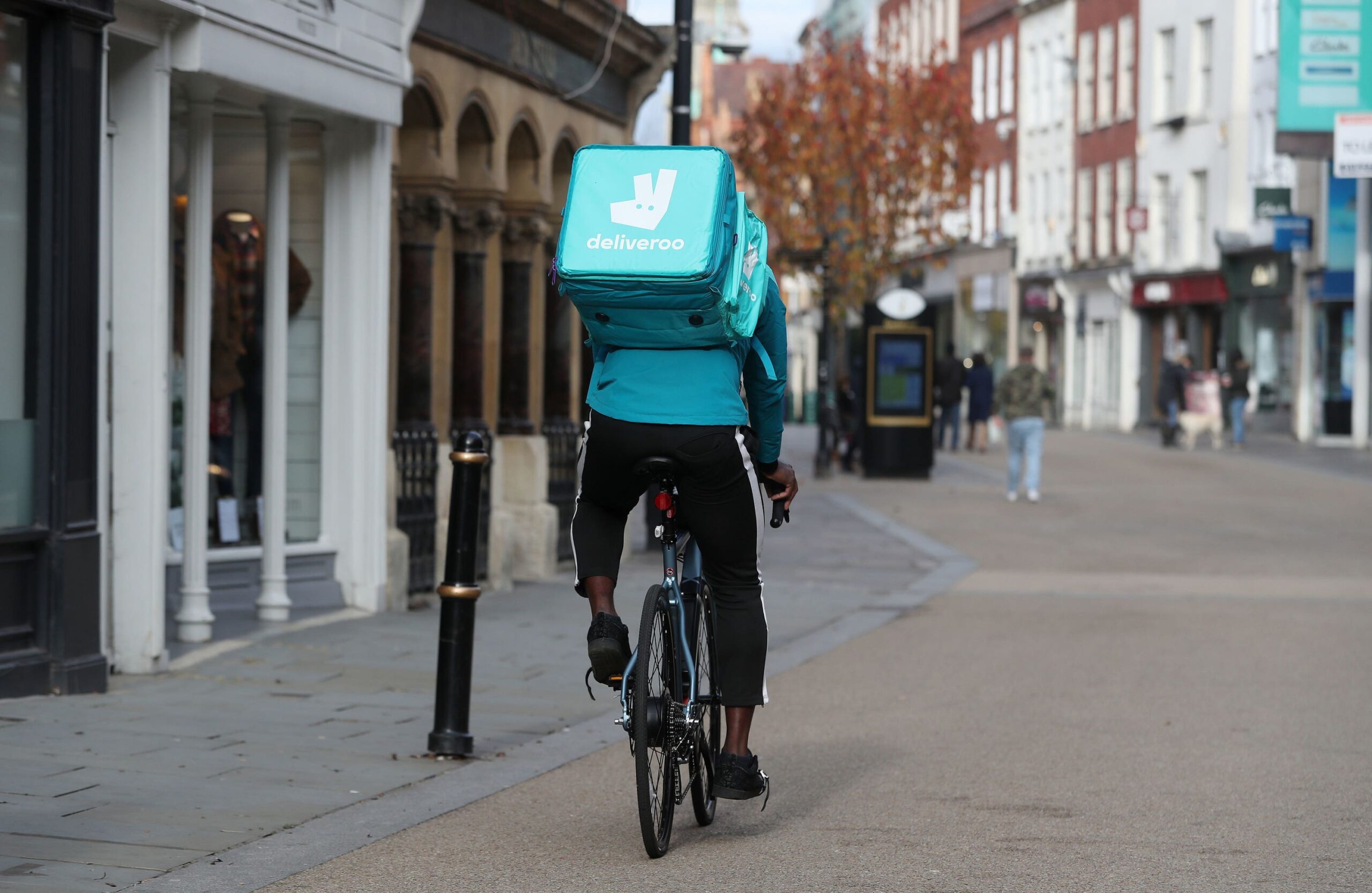Takeaway logistics company Deliveroo doubled the number of orders it received through its app in the first six months of the year.
The business said it took 148.8 million orders in the half, up from 74.5 million in the same period last year.

It also reported a doubling of gross transaction value, to nearly £3.4 billion.
The business has been boosted by more than a year of on-and-off lockdowns in the UK. Customers were unable to visit restaurants, so ordered their food online instead.
However, Deliveroo said that so far it has proven fairly immune to the end of lockdown, with “no material impact” from the UK reopening during the second quarter of the year.
In accounting, anything with a less than 1% effect on turnover can be considered as having no material impact.
Chief executive Will Shu said: “We are seeing strong growth and engagement across our marketplace as lockdowns continue to ease.
“Demand has been high amongst consumers. We have widened our consumer base, seen people continuing to order frequently, and we now work with more food merchants than any other platform in the UK.”
But Deliveroo said it will not last forever and the lockdown bounce is likely to ease off in the second half of the year.
The company said it expects gross transaction value to grow between 50% and 60% this year, sticking to guidance it provided in July.
“As reflected in our guidance, whilst we expect that consumer behaviour may moderate later in the year, we remain excited about the opportunity ahead and our ability to capitalise on it,” Mr Shu said.
The business is still loss-making but cut pre-tax loss from £128.4 million to £104.8 million over the period, on revenue of £922.5 million – up 82%.
It is less than five months since Deliveroo came to market with a problematic float which saw its share price collapse.
The London-based firm had hoped to sell shares for 390p each when it listed, but the market had other ideas.
Within just a couple of weeks the share price hit a low of 225p. Since then it has recovered much of that ground, but still lags behind the initial optimism.

















